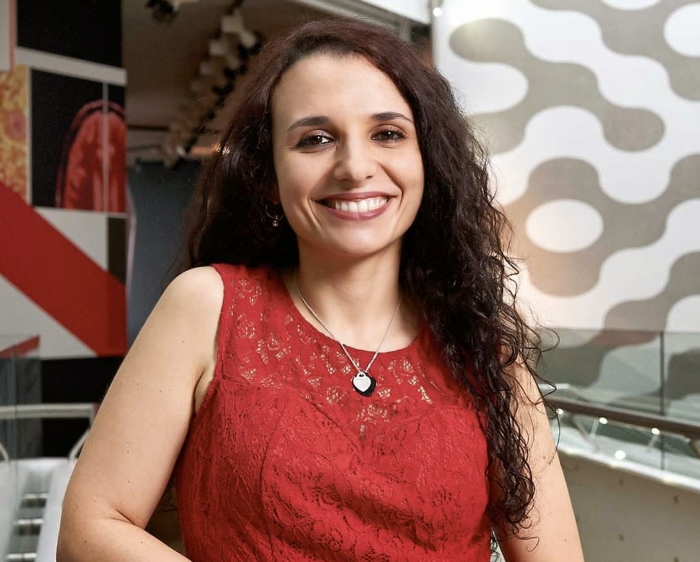Dr. Francesca Minerva
Francesca Minerva, Ph.D., a Utilitarian Philosopher and Enthusiastic transhumanist, is the Cofounder and Coeditor of the Journal of Controversial Ideas and the Author of The Ethics of Cryonics. She is Postdoctoral Research Fellow at the Department of Politics and International Studies at the University of Warwick and FWO Postdoctoral Fellow at the Department of Philosophy and Moral Sciences at the University of Ghent.
Francesca has published more than 30 research papers, with a focus on applied philosophy, including lookism, conscientious objection, abortion, academic freedom, human enhancement, and cryonics. She has also worked on the philosophy of death and personal identity.
In her work on applied philosophy, she is specializing in medical ethics, bioethics, and discrimination.
Between 2012 and 2015, Francesca was Lecturer at the Faculty of Philosophy at the University of Melbourne. As well, she was Deputy Director and later Academic Coordinator at the Centre for Applied Philosophy and Public Ethics (CAPPE Melbourne).
In 2014, Francesca taught and lectured on Bioethics, Healthcare Ethics, Clinical Ethics, Biotechnologies, Justice, and the Law at the Centre for Human Bioethics, Monash University.
As Visiting Scholar, she worked at the Uehiro Centre for Practical Ethics, Oxford University between 2011 and 2017, at Stockholm’s University Faculty of Philosophy, the University of Bergamo, and the University of Oslo.
With Anders Sandberg, Francesca coauthored an Oxford Handbook of Digital Ethics book chapter, The Ethics of Brain Uploading. They also coauthored Euthanasia and cryothanasia in the journal Bioethics in 2017 where they discuss the moral and legal aspects of causing the death of a terminal patient in the hope of extending their life in the future.
They call this theoretical procedure cryothanasia. They argue that administering cryothanasia is ethically different from administering euthanasia. Consequently, objections to euthanasia should not apply to cryothanasia, and cryothanasia could also be considered a legal option where euthanasia is illegal.
In 2012, Francesca, together with Alberto Giubilini, published a controversial paper After-birth abortion: why should the baby live? where the authors argue that what we call ‘after-birth abortion’ (killing a newborn) should be permissible in all the cases where abortion is, including cases where the newborn is not disabled.
At first, it was seen as a case of the usual controversy between Catholics and secularists, but emotive reaction prevailed and the response was the flood of papers expressing strong opposition. As well, both authors were subjects to personally abusive correspondence. Read What I’ve learnt about controversy.
These were partly the events that led her to cofound the Journal of Controversial Ideas and to promote and work on Academic Freedom as an essential component of the Academic Research.
In her work with Lookism, Francesca is arguing that less attractive people have fewer opportunities than attractive people. As well, she is promoting the idea that they could get cosmetic surgery sponsored by the government to look more attractive.
Watch How to tackle discrimination against the unattractive?, Ugly = Free operation, listen to NRK Radio with Francesca, and read Give ugly people free plastic surgery. They suffer.
Francesca earned her Ph.D. in Bioethics at the University of Bologna Faculty of Law in 2010, with her dissertation Can conscientious objection in medicine be morally justified? She earned her Laurea Magistrale (M.Phil.) in Philosophy at the University of Pisa Faculty of Philosophy in 2005.
Francesca is an Advisory Board Member at Brain Preservation Foundation and Member at Heterodox Academy. Previously she was Advisory Board Member and Deputy Director of the national administrative board of Consulta di Bioetica through which she also participated at the Conference for Euthanasia in Italy. She cofounded and was member of Consulta di Bioetica of Pisa.
She is on a review board of several journals, including Bioethics, Biomed Central, Journal of Bioethical Inquiry, Journal of Medical Ethics, Neuroethics Philosophy and Technology, Monash Bioethics Review, Philosophia, Journal of Posthuman Studies, Medicine, Health Care, and Philosophy, and Ethical Theory and Moral Practice.
Watch Interview with Francesca. Listen to Academic Freedom on BBC’s Moral Maze. Listen to Philosophical Disquisitions’ Episode #46 — Minerva on the Ethics of Cryonics.
Francesca was an invited speaker at more than 50 conferences and seminars, including at BioStasis 2020, speaking on The Ethics of Cryopreservation.
Watch Dr. Francesca Minerva on Lookism in How to tackle discrimination against the unattractive? and Should doctors be allowed to refuse medical care? Watch Festival of Dangerous Ideas: Panel — Human Existence Doesn’t Matter (And What Is It Anyhow?) and From Disability to Enhancement.
Read What are the ethical consequences of immortality technology? and The Invisible Discrimination Before Our Eyes: A Bioethical Analysis. Read Making The Case For The Global Kidney Exchange. Read After-birth abortion: why should the baby live? and Bioethics and the new media. Read Practical Ethics: Ethics in the News.
Visit her Ghent University page, Personal Webpage, and Publons page. Follow her on Facebook, Google Scholar, Instagram, ORCiD, PhilPeople, and X.
